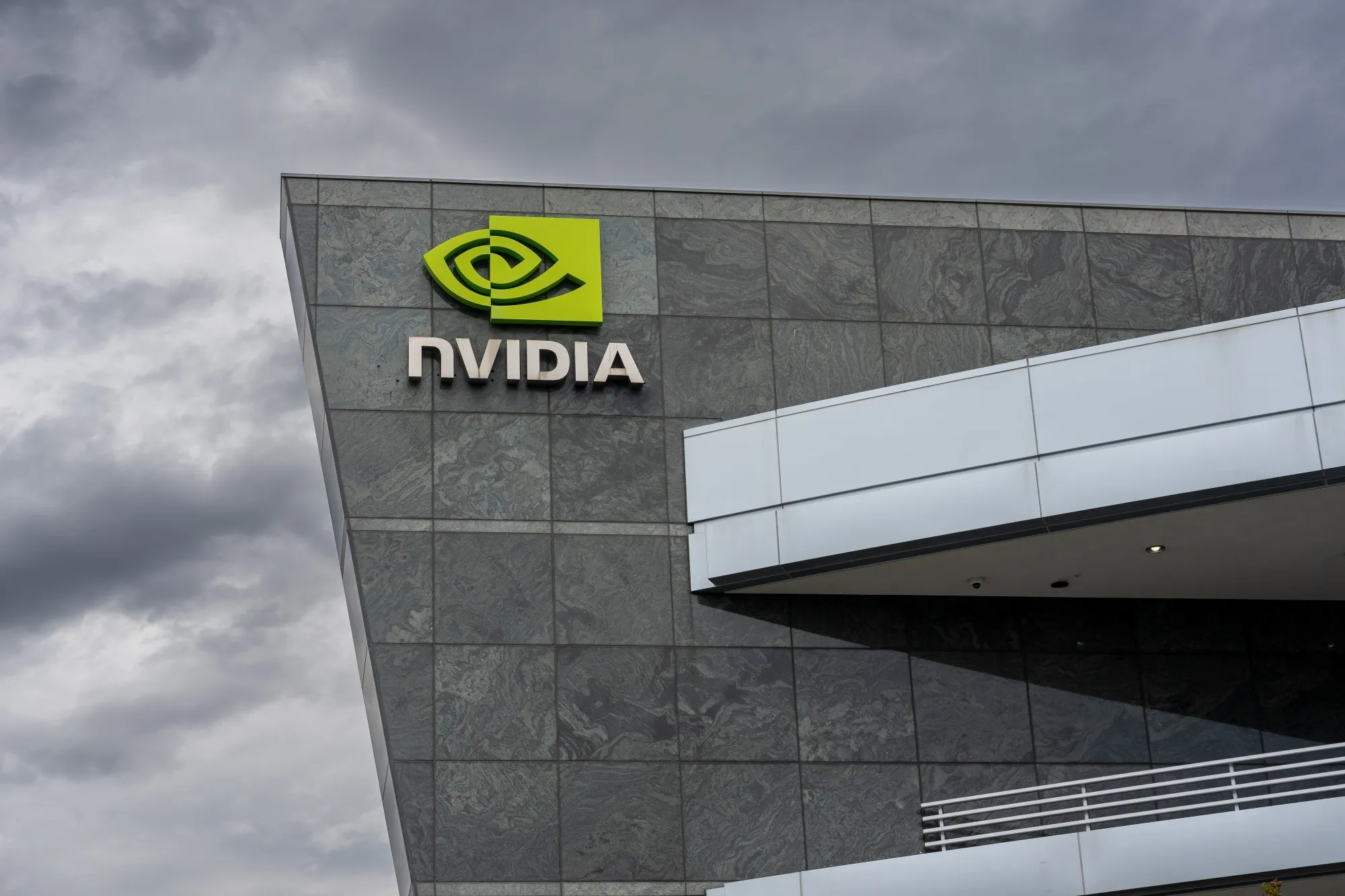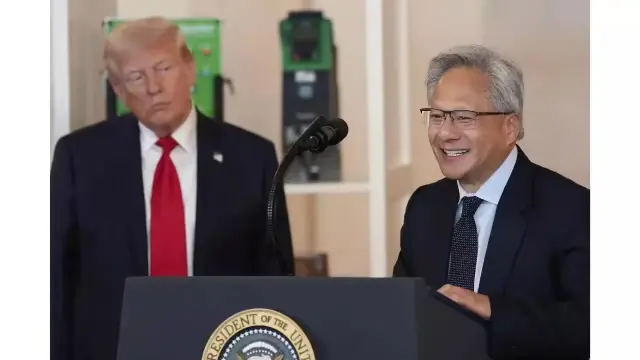trending
neon
Cirque du Soleil offers summer ticket deals
dining out
Celebs ditch the Strip for iconic Henderson restaurant
july 
trending
neon
Cirque du Soleil offers summer ticket deals
dining out
Celebs ditch the Strip for iconic Henderson restaurant
july 

The Biden-Harris administration has announced an additional $210 million in funding for tech hubs, aiming to boost innovation and foster economic growth across the U.S




The Biden-Harris administration has announced a landmark $210 million investment aimed at fostering the development of technology hubs across the United States. This additional funding is part of a broader push to strengthen the nation's technological infrastructure, drive innovation, and promote economic growth, particularly in areas that have historically been underrepresented in the tech industry.
Tech hubs play a critical role in advancing the U.S. economy by creating high-tech jobs, supporting startups, and spurring innovation across various sectors, including artificial intelligence, clean energy, cybersecurity, and biotechnology. The funding will help build infrastructure, provide grants, and support training programs in cities and regions across the country, enabling local economies to benefit from the technological advancements driving the global economy.
Tech hubs serve as epicenters for collaboration, where businesses, research institutions, and local governments come together to foster innovation. They also create networks that allow emerging companies to scale, making it easier for small businesses to access funding, mentorship, and resources to grow. In addition to economic growth, the expansion of tech hubs is seen as essential for addressing the technological skills gap in the U.S. workforce, ensuring that Americans have access to the training and education needed to thrive in a rapidly changing job market.
The $210 million in funding will be distributed across multiple tech hubs, with a particular emphasis on supporting underrepresented regions and communities. The goal is to create a more inclusive tech ecosystem that spans beyond traditional hubs like Silicon Valley, New York City, and Boston. By investing in areas such as the Midwest, South, and rural America, the administration aims to level the playing field and provide opportunities for communities that have not traditionally had access to cutting-edge technology and innovation resources.
The funds will support a range of initiatives, including grants to local governments, universities, and private sector partners. These grants will help develop research and development (R&D) infrastructure, build talent pipelines, and promote collaboration between businesses and academic institutions. Additionally, a portion of the funding will be used to create workforce development programs, focusing on upskilling workers in high-demand tech fields such as software engineering, data science, and cybersecurity.
This investment aligns with the Biden administration’s broader economic agenda, which prioritizes building back better by creating jobs, supporting small businesses, and investing in clean energy technologies. The administration views the expansion of tech hubs as a key component of this strategy, ensuring that all Americans benefit from the economic opportunities created by technological advancement.
The Biden-Harris administration has emphasized that the U.S. must remain competitive in the global tech race, especially as China and other nations continue to make significant strides in developing emerging technologies. By investing in domestic tech hubs, the administration hopes to ensure that the U.S. retains its leadership position in innovation and technological development.
The funding for tech hubs will also address the increasing demand for tech talent, which is critical for maintaining U.S. competitiveness in sectors like artificial intelligence, 5G, and quantum computing. As the demand for highly skilled workers in tech fields grows, the development of tech hubs will help train the next generation of leaders and innovators. This will also have the added benefit of reducing the outsourcing of tech jobs to other countries, helping to keep the U.S. workforce competitive on the global stage.
Furthermore, the expansion of tech hubs is seen as a way to promote economic resilience. By diversifying the geographic spread of tech innovation, the U.S. can reduce its reliance on a few concentrated regions, making the economy more adaptable to future technological disruptions and global challenges. Tech hubs in different parts of the country will help ensure that innovation is not just limited to a few major metropolitan areas but is instead spread throughout the nation.
One of the key objectives of the $210 million investment is to promote greater inclusivity in the U.S. tech ecosystem. Historically, the tech industry has been criticized for its lack of diversity, with women, minorities, and rural communities often being excluded from high-tech opportunities. The Biden-Harris administration has made it a priority to address these disparities and ensure that all Americans have an equal chance to succeed in the tech economy.
To this end, the funding will prioritize initiatives aimed at increasing diversity in tech. This includes scholarships and training programs for underrepresented groups, as well as efforts to support women in STEM fields. By building a more inclusive tech ecosystem, the administration hopes to ensure that the benefits of technological progress are shared more broadly across society, helping to reduce economic inequality and promote social mobility.
The expansion of tech hubs is also seen as a means of addressing the digital divide, ensuring that all Americans, regardless of their geographic location or socioeconomic background, have access to the tools and training they need to participate in the digital economy. By investing in rural and underserved communities, the Biden administration is working to create a more equitable tech landscape, where innovation is accessible to everyone.
The $210 million investment in tech hubs is just the beginning of what is expected to be a sustained effort by the Biden-Harris administration to revitalize U.S. technological infrastructure. As the country faces global challenges such as climate change, cybersecurity threats, and geopolitical competition, the development of domestic tech hubs will be a critical component of ensuring that the U.S. remains a leader in technological innovation.
By investing in tech hubs, the administration is not only creating jobs and supporting small businesses but also fostering the next generation of technologies that will shape the future of industries such as healthcare, energy, and transportation. The long-term impact of this funding will be felt across multiple sectors, helping to secure a brighter, more innovative future for the U.S. and its citizens
The Biden-Harris administration has announced an additional $210 million in funding for tech hubs, aiming to boost innovation and foster economic growth across the U.S
the latest

Cerebras to Deploy AI Infrastructure at UAE Stargate Campus
Cerebras Systems, a leading AI hardware company, announced plans to deploy its advanced AI infrastructure at the UAE’s Stargate data campus.

US Approves Nvidia AI Chip Sales to UAE Amid Export Curbs
The U.S. government has authorized certain Nvidia AI chip exports to the United Arab Emirates, easing restrictions imposed under Washington’s export control policies. The decision signals a balancing act between U.S. security concerns and the UAE’s growing role in global AI development.

US Approves Billions in Nvidia AI Chip Sales to UAE
The U.S. Commerce Department has granted export licenses for several billion dollars’ worth of Nvidia AI chips to the UAE under a bilateral AI agreement, Bloomberg reports.

Nvidia CEO Frustrated as U.S. Delays UAE AI Chip Deal
Nvidia CEO Jensen Huang has voiced frustration over delays in the UAE’s AI chip deal, reportedly caused by U.S. pressure. The delay risks slowing regional AI expansion and complicating U.S.-UAE tech diplomacy.

Trump’s UAE Chip Deal Delays Frustrate Nvidia’s Jensen Huang
Nvidia CEO Jensen Huang expressed frustration over delays in the Trump-backed UAE chip deal, raising concerns over AI and semiconductor expansion.

UAE President, OpenAI CEO Discuss AI Collaboration Plans
UAE President Sheikh Mohamed bin Zayed met OpenAI CEO Sam Altman to explore collaboration in AI, aiming to boost innovation and digital transformation.

Nvidia CEO Frustrated by Delays in Trump’s UAE Chips Deal
Delays in Donald Trump’s UAE chip deal have left Nvidia CEO Jensen Huang frustrated, raising concerns about global chip supply chains and AI ambitions.

Ericsson, Nokia Secure $2.7B VodafoneThree UK Deal
VodafoneThree has awarded Ericsson and Nokia a $2.7 billion contract to build the UK’s largest 5G network, a move set to reshape telecom competition.

UAE President Meets OpenAI CEO to Strengthen AI Ties
UAE President Sheikh Mohammed bin Zayed met OpenAI CEO Sam Altman in Abu Dhabi to explore deeper AI collaboration, focusing on research, infrastructure, and innovation.